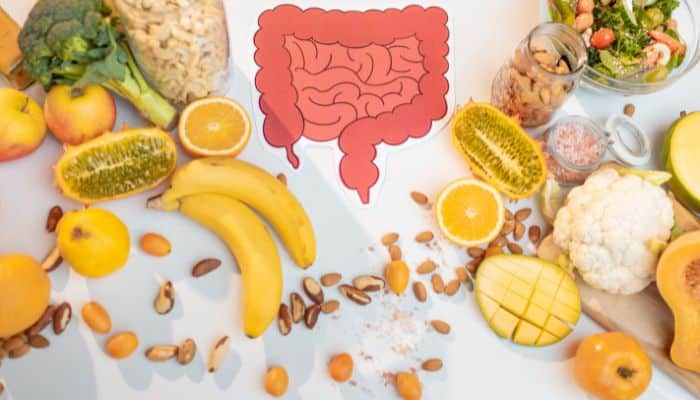Top 8 Foods for a Healthy Colon
Your intestines play a much larger role in your overall health than previously imagined, from making and storing serotonin to influencing your immune response. How can you keep a healthy colon? What are the best foods for a healthy gut — and what snacks and beverages should you avoid?
Fortunately, it’s never too late to improve your colon health. This area of your body can rebound quickly with the right diet and a little TLC. It all begins with the right meal plan.
The Importance of Keeping a Healthy Colon
Why should you care about keeping a healthy colon, anyway? Doing so could extend your life. Colorectal cancer remains the third most prevalent variety, although numbers have dropped since the 1980s. Improved screening recommendations caught cases at earlier stages, leading to remission.
Most people benefit from regular screenings at age 50. However, doctors now recommend that members of high-risk populations — such as African Americans — begin even earlier at 45. Early screenings allow doctors to remove polyps before they become cancerous, potentially spreading to other tissues. Since your colon plays a crucial role in digestion, it makes sense that the meals you choose influence its overall health.
Foods for a Healthy Gut: General Rules
Sometimes, selecting the best foods for a healthy gut means knowing what to avoid to prevent making existing colon problems worse. Here are some substances everyone can use less of if they want to improve their diet and overall well-being:
- Alcohol: Moderate to heavy consumption increases your colorectal cancer risk.
- White flour: It’s what this stuff lacks that causes problems. The manufacturing process strips away the fiber-rich bran and chaff, leaving you with a substance that absorbs as quickly as sugar. Your body needs fiber for a healthy intestinal microbiome, so stick to whole grains.
- Sugar: Although sugar doesn’t directly cause cancer, it increases your risk of other diseases, like Type 2 diabetes. Furthermore, excess sugar consumption upsets your microbiome.
- Antibiotic-laden foods: Antibiotics deplete your gut microbiome — the healthy bacteria colonies in your intestines that help you digest. Many farmers use these in meat production, so carefully read labels.
8 Best Foods for Colon Health
In general, whole foods that resemble their natural forms are safe. However, some meals contain specific substances that nurture your gut. Here are eight of the best foods for colon health.
1. Oats
Fiber is essential for nurturing your intestinal microbiome. You don’t directly “eat” it, but your gut bacteria do. It also adds bulk to your stool by drawing water into your colon, making the go easier.
Oats are among the best sources of fiber. Additionally, many people with celiac disease can tolerate oats, although you must read labels carefully because of the cross-contamination risk.
2. Ginger
Your childhood caregivers might have given you stale ginger ale when young you had an upset stomach. Their hearts were in the right place, even if their beverage of choice contained little of the herb extract. Ginger is a time-tested remedy to combat discomforts like bloating and nausea.
The zingibain is the magic ingredient that helps your body break down protein, easing digestion. Additionally, ginger acts as a potent anti-inflammatory and is a snap to add to your morning coffee or tea, giving it a light chai flavor.
3. Broccoli
Once upon a time, comedian George Carlin joked about eating a giant bowl of broccoli to cure cancer. The famous funny man wasn’t far off the mark. A recent study revealed that this vegetable’s aryl hydrocarbon receptor ligands bind to the receptors in mice intestines, positively directing gene expression.
Conversely, the mice not fed broccoli developed intestinal conditions indicative of chronic disease. They had fewer Paneth cells to maintain the microbiome and food traveled through their intestinal tracts more quickly.
Fortunately, it’s not only broccoli that works this magic, in case you don’t like “little trees.” The secret ingredient lies in plants in the same family, including:
- Arugula
- Bok choy
- Brussels sprouts
- Cauliflower
- Cabbage
- Collard greens
- Radishes
4. Fish
Fish are an often-overlooked colon superfood. For one, they’re an excellent complete protein source for replacing red meat, which the WHO considers a probable carcinogen.
Furthermore, fish are a fabulous source of omega-3 fatty acids. While you need omega-3 and omega-6 for health, most Americans tip the scales in favor of omega-6 by a considerable ratio, spurring inflammation. Although some plant-based foods like flax are high in omega-3s, only fish contain DHA and EPA. Plants primarily contain ALA.
5. Yogurt
You know your microbiome consists of healthy bacteria. However, their numbers can deplete with time, poor diets and antibiotic use. Fortunately, you can replenish your stash by eating probiotic-rich foods like yogurt. These contain the active bacteria cultures to replenish the supply your body lost.
6. Apples
Most fruits are far better dessert choices than sugar-laden cakes and pies. Apples are one of your best bets, as they come loaded with pectin — a type of fiber that your intestinal bacteria love.
7. Beans and Lentils
You might know beans as the musical fruit. However, they’re fabulous for colon health because of their high fiber content.
8. Nuts and Seeds
Your gut makes 90% of your body’s serotonin — a happiness-related neurotransmitter. It needs trace minerals like magnesium, selenium and zinc to do so, all of which are in nuts. These snacks are among the best foods for gut and heart health because they also have a high potassium content to lower blood pressure.
Best Foods for Colon Health
Improving your colon health through your diet is a wise choice. Maintaining a healthy colon helps you slash your cancer risk and enjoy enhanced well-being, so add the best foods for a healthy gut to your weekly meal plan today. You’ll feel better while improving your long-term chances of avoiding disease.



Comments are closed.